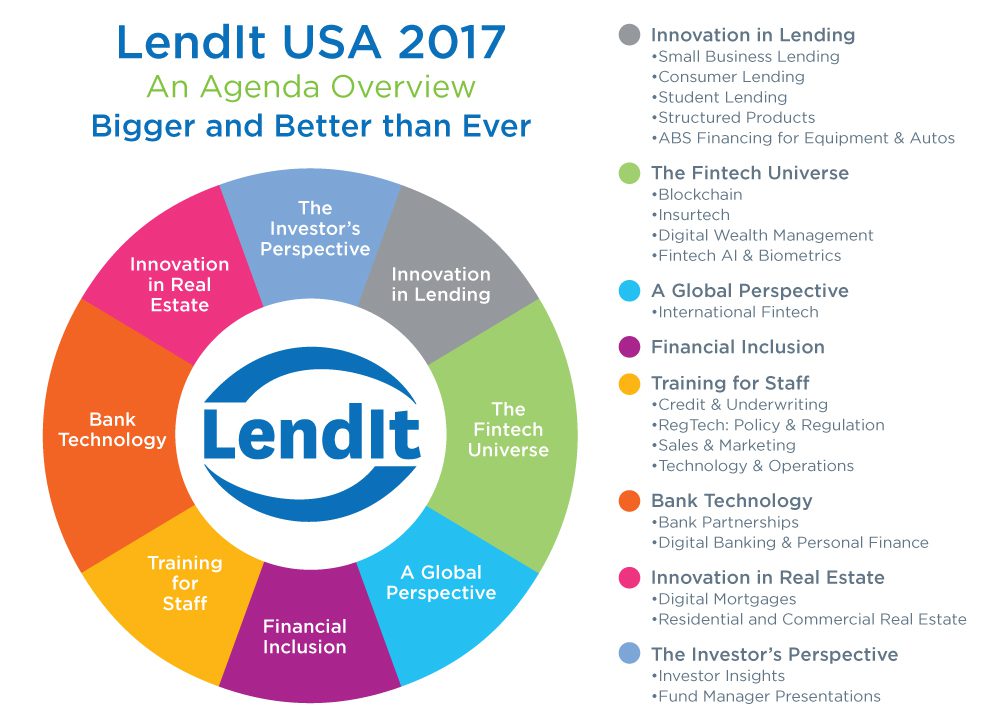India has fast become one of the world's most interesting fintech markets; at LendIt USA 2017 we hosted a fireside chat focused on digital credit for the India population and how their biometric Aadhaar system plays a key role; a few key developments have helped the India population, the ease of acquiring a smartphone and the Aadhaar system; Aadhaar started with an investment by the India government eight years ago and today there is one billion Indians who have an Aadhaar number with key identifiable pieces of information; the government then began linking Aadhaar with the banking system and enlisted fintech firms to begin extending microloans to individuals and SMEs; Aadhaar helps to solve the biggest issue with lending, KYC, by using a retina scan or biometric signature to verify the borrower; the fireside chat also talked through how the lending process worked with Aadhaar and how it has helped to extend credit to a segment of the population that only a few years ago was unable to access capital. Source
Banks of all sizes have been trying to figure out how to adapt to the changing landscape and at LendIt USA 2017 we hosted a panel to look at the future of digital banking; panelists cover how they see the future of banking, is it mobile only or mobile first, how do millennials help to guide strategies and when life becomes more complex how many different devices do people use; panelists focused on how to leverage social networks and how important digital strategies are to grow your audience; when doing partnerships who really owns the customer, is it the bank or does the customer feel more ownership to the social network or other type of partner; how do you compete with larger incumbent banks and how are smaller more nimble players able to gain market share; the panel also touches on different types of fees, how to make money in the digital age and how smaller firms can keep costs lower as they scale. Source
 Originators are beginning to look at launching their own captive funds; at LendIt USA 2017 we hosted a panel featuring Cross River Bank, Freedom Financial, Money360, Credibly, UBS and Clifford Chance to discuss this idea; the originators on the panel talked about their current funds, if they have launched one, size, structure and how they currently view the idea of this vehicle in the long term; the panelists focused on diversification of funding sources; in good times it is never hard to get loan purchasers but when markets tighten how can you make sure you are prepared; they also talked about when setting up this funding vehicle should you manage it yourself or should you find a third party fund manager; how do conflicts of interest come into play when the originating company is then investing in the loan and servicing the loan; there are still many questions when it comes to setting up a fund like this, as more firms look to this option we will better understand how to answer these questions in the future. Source
Originators are beginning to look at launching their own captive funds; at LendIt USA 2017 we hosted a panel featuring Cross River Bank, Freedom Financial, Money360, Credibly, UBS and Clifford Chance to discuss this idea; the originators on the panel talked about their current funds, if they have launched one, size, structure and how they currently view the idea of this vehicle in the long term; the panelists focused on diversification of funding sources; in good times it is never hard to get loan purchasers but when markets tighten how can you make sure you are prepared; they also talked about when setting up this funding vehicle should you manage it yourself or should you find a third party fund manager; how do conflicts of interest come into play when the originating company is then investing in the loan and servicing the loan; there are still many questions when it comes to setting up a fund like this, as more firms look to this option we will better understand how to answer these questions in the future. Source
 The securitization market in marketplace lending continues to strengthen as more lenders utilize this capital route; the LendIt USA 2017 panel on securitization talked through the market conditions and what it takes to do a deal; the panel went through the challenges faced in 2016 and how the industry has come back looking stronger; the industry has gotten back to the fundamentals which are a cornerstone of securitization deals; the vast majority of deals are made up of unsecured consumer loans, but other asset classes including mortgages, student loans and auto have been coming to market; topics touched upon also included barriers to success, vertical versus horizontal interests and the effects of risk retention on the overall market. Source
The securitization market in marketplace lending continues to strengthen as more lenders utilize this capital route; the LendIt USA 2017 panel on securitization talked through the market conditions and what it takes to do a deal; the panel went through the challenges faced in 2016 and how the industry has come back looking stronger; the industry has gotten back to the fundamentals which are a cornerstone of securitization deals; the vast majority of deals are made up of unsecured consumer loans, but other asset classes including mortgages, student loans and auto have been coming to market; topics touched upon also included barriers to success, vertical versus horizontal interests and the effects of risk retention on the overall market. Source
While fintech innovation has greatly evolved in recent years, there is still much more to be accomplished; one area available for significant market growth is financial inclusion; Lend Academy talks about fintech innovation for the underserved bank customer in their article; LendIt will be running a financial inclusion track this year at LendIt USA to help support development of this market opportunity. Source
LendIt has announced a list of keynote speakers for LendIt USA 2017 on March 6 and 7; keynote speakers will cover the industry's most important topics and innovations; as fintech regulation and a new presidential administration influence the market, LendIt USA 2017 will also be featuring some of the industry's most influential government officials including Richard Cordray, director of the Consumer Financial Protection Bureau, Thomas Curry, comptroller of the currency for the US Department of the Treasury and Patrick McHenry, US congressman. Source
LendIt provides details on LendIt USA 2017 training sessions in their blog post; the training sessions will be focused on sales and marketing, and technology and operations; the two sessions will be held on March 6 and will include interactive discussion; the sales and marketing training session will be in the morning and will include discussion on digital marketing channels, and lead generation, retention and engagement; the technology and operations session will be in the afternoon and will include discussion on artificial intelligence and the importance of mobile. Source

Rachel Schneider discusses a new way of thinking about the financial lives of Americans; suggests that many of the models are out of date; Schneider worked with a research project called US Financial Diaries which worked with 235 families to learn about every dollar that they spent, borrowed, saved, earned, and more; through the research they understood these families on a much deeper level to understand the 'why' behind financial decisions; Schneider shares many interesting data points including income and spending spikes in the lives of Americans; highlights the opportunities for fintech companies in the US. Source





